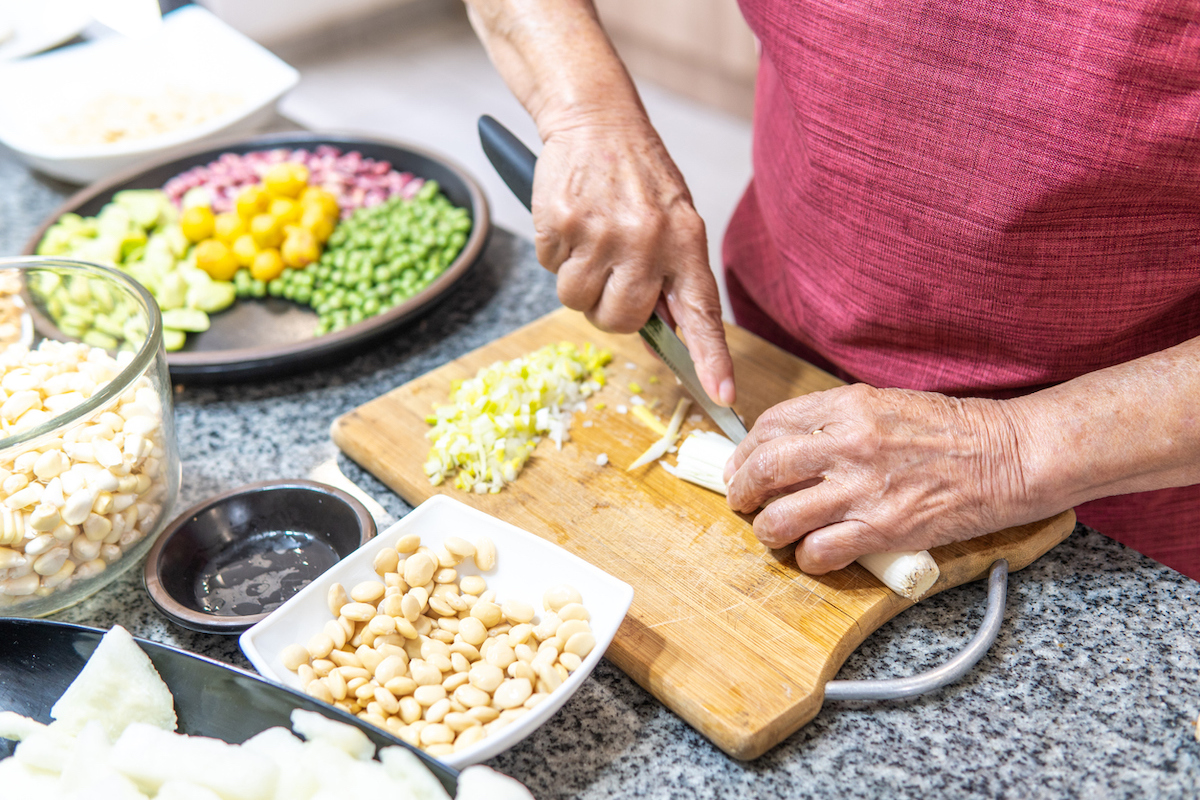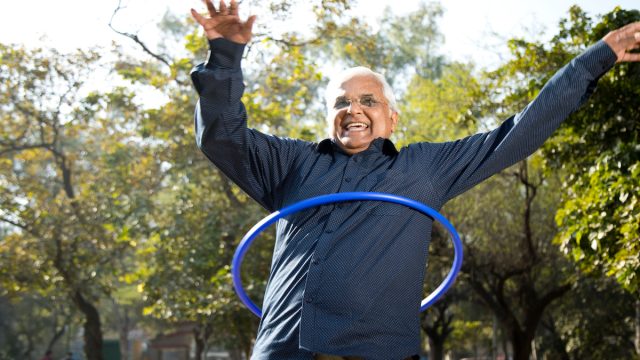Doctors Reveal Their 6 Best-Kept Longevity Secrets
Here's how to add healthy years to your life.
When it comes to boosting longevity, there are some key strategies that we're all well aware of. If you smoke, quit. If you drink excessively, cut back. If you've been putting off medical screenings, pick up the phone and make those appointments. However, beyond these foundational habits, there are a handful of lesser-known ways to extend your healthy years. That's why we consulted doctors to learn their six best-kept longevity secrets.
RELATED: People Who Live to 100 Have These 3 Things in Common, New Research Shows.
1
Eat less meat.

According to the U.S. Department of Agriculture (USDA), the average American gets at least one-third of their calories from animal-based sources. The Centers for Disease Control and Prevention (CDC) adds that 60 percent of foods consumed in America are processed or ultra-processed.
One of the greatest ways you can impact your longevity is by significantly slashing your meat intake and reducing your consumption of processed foods, instead opting for a whole-food, plant-based diet, such as the Mediterranean diet.
"The Mediterranean diet is associated with reduced risk of cardiovascular disease, cognitive decline, certain cancers, and overall mortality due to its anti-inflammatory and antioxidant properties," explains Ramit Singh Sambyal, MD, a physician working with ClinicSpots.
2
Eat more legumes.

Adding legumes to your diet is another simple way to add years to your life. In fact, in Blue Zone areas—those in which a disproportionate number of people live to or past the age of 100—beans, peas, and pulses tend to be heavily featured on the menu.
Research corroborates what people around the world have been saying for ages: Beans are a longevity staple. A 2001 study determined that eating beans at least four times per week slashed heart disease by 22 percent, and a 2004 study found that people who ate one ounce of beans daily added approximately eight years to their lifespan.
RELATED: How to Live Longer—Even If You Sit All Day, New Research Shows.
3
Eat fewer calories.

Restricting your calorie intake is another way to boost longevity through your diet. In fact, one study published in the journal Nature Aging followed a group of 220 adults who usually consumed 2,000 calories, and asked half of them to reduce their overall calorie intake by 25 percent.
In practice, that group reduced their calorie intake by 12 percent, but still saw major improvements in their health, as measured by blood tests. The people who ate fewer calories slowed their pace of aging by two to three percent.
According to Dan Belsky, a senior author of the study and an assistant professor of epidemiology at Columbia University's Mailman School of Public Health, this translates into a 10 to 15 percent lower likelihood of dying prematurely.
"That 12 percent was enough to have significant changes," Belsky recently told NBC News. "We all have the power to change the trajectories of aging."
4
Spend time on the floor.

Staying physically active as you age can help you live a longer, healthier life. Aim for at least 150 minutes of moderate intensity exercise per week, including strength training exercises two or more days per week, according to the CDC.
"Exercise has numerous benefits for longevity, including improving cardiovascular health, metabolic function, reducing inflammation, and enhancing cognitive function," explains Sambyal.
However, there's one type of exercise that may be especially effective in adding years to your life—regularly standing up from a seated position on the floor.
"Okinawan centenarians sit and get up from the floor dozens or hundreds of times per day. This exercises their legs, back, and core in a natural way as they get up and down all day long," explains Blue Zones, a site devoted to sharing the secrets of longevity. "Sitting on the floor also improves posture and increases overall strength, flexibility, and mobility. Studies correlate the 'ability to sit and rise from the floor without support' with a longer life expectancy."
RELATED: 116-Year-Old Woman With No Major Health Issues Reveals Her Longevity Diet.
5
Keep in touch with acquaintances.

As you get older, another surprising way to add years to your life is by maintaining social connections with others. Intimate relationships with friends and loved ones are especially powerful, but research has shown that even friendly interactions with acquaintances can improve one's health.
"Strong social ties have been linked to a lower risk of mortality," says Phyllis Pobee, MD, CCFP, ABFM, a family physician who specializes in weight loss medicine. "A meta-analytic review published in PLOS Medicine found that robust social relationships increase the likelihood of survival by 50 percent, equivalent to quitting smoking."
6
Aim for 4,000 steps a day.

Taking 10,000 steps every day is a great health goal, but recent research reveals that you can significantly impact your health and longevity long before hitting that benchmark.
Getting just 4,000 steps per day—the equivalent of a 30 to 45 minute walk—slashes all cause mortality risk and improves heart health, says a new study published in the European Journal of Preventative Cardiology. For every additional 1,000 steps you take after that, you can further slash your risk of premature death by another 15 percent.
For more health advice sent directly to your inbox, sign up for our daily newsletter.
Best Life offers the most up-to-date information from top experts, new research, and health agencies, but our content is not meant to be a substitute for professional guidance. When it comes to the medication you're taking or any other health questions you have, always consult your healthcare provider directly.
- Source: Archives of Internal Medicine
- Source: Asia Pacific Journal of Clinical Nutrition
- Source: Nature Aging
- Source: CDC: Benefits of Physical Activity
- Source: PLOS Medicine
- Source: European Journal of Preventative Cardiology






















